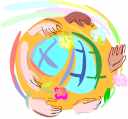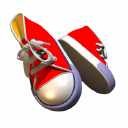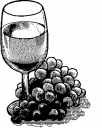| |
Tuesday, September 25, 2001

The first movement was walking, so people walked.
Then came the car, so the population drove.
Later arrived the airplane, and people filled airports and flew.
To walk costs almost nothing.
Driving is a higher commitment to a budget of gas,
insurance, cleaning, and repairs, yet the common man
can manage it.
Flying is the most expensive of all, only a few
own a plane, and it's consider a luxury to just buy a ticket.
If you fall while walking, you can expect one person, if any,
usually someone who loves you, to help you
up off your bleeding knees.
If you crash your car you can expect a crowd,
bystanders, an ambulance, paramedics and police.
But if you crash a plane,
thousands will rush in,
to help if they can, to know why
and soon the world knows and anyone
and everyone will wade through blood and jet fuel to help.
Workers, proud to be chosen, are assigned to pick each piece up,
then catalog it. No expense is spared, when cleaning
a plane crash, and the world gives freely to it. And if a single man
falls while searching the rubble for parts
there is always more than one person there to pick him up.
It's the most beautiful thing I've ever seen, the way
they brush him off, stand him up, and wait a second
to make sure he doesn't stumble again.
(See poetry in Slow Trains Issue 1)
Thursday, September 20, 2001
 From Toronto to Thunder Bay From Toronto to Thunder BayWhen I went back home, I took my daughter to the creek I used to play in, and I took her to the hill I used to slide down in the winter. Devil's Hill -- you'd fly down, teeth knocking, seeing double, and jeezuz boy, your arse'd be froze, tail bone cracking all the way. You'd fight over the aluminum disc called The Flying Saucer -- if you lost and didn't have a piece of cardboard, you'd just roll down, end over end. The hill doesn't seem big enough now to fit in my final "end" If I tried it now, by end/over I'd be down, flat out on the now-paved rollerblade trail at the bottom.
We'd be gone all day in the summer back then. Cooking crawfish from the creek in rusty tins, skidding down the river-slicked rocks on our skinny kid butts, filling our lungs and holding our breath under the water in an effort to evade the deer flies that bit you anyway when you came back up dizzy and gasping. You had to hide the cuts on your feet that you got climbing the rocks you weren't supposed to be climbing. You could keep your Keds on, but if they came home wet, there wasn't much use in trying to say you weren't in the creek .
How do you explain this kind of freedom to a big city kid? An all day freedom. A "Mom, we're going to the bush" freedom. No video games, no guns, no gangs; just a summer of fresh air, wild raspberries and the occasional grass fire for excitement.
Maybe if you don't know what you're missing, you don't miss it. And maybe my daughter will look back on her childhood as fondly as I look back on mine. I hope she does. But I can't give her the freedom that I had, because there are some days now when the world scares me too much.
Wednesday, September 12, 2001
September 12

 Wednesday, September 12, 2001 5:01 AM EDT New York City Dear Ones -
It's the middle of the night here in New York, a city which doesn't generally sleep even under the best of circumstances and which is certainly lying awake tonight. I have walked and ridden my bike around the city today. I have seen both rivers, which are still there. I have seen the hollow mushroom cloud where the longest arms of my city's beautiful skyline once reached to the clouds. I have seen the stunned crowds on the streets at 10:30 AM and the erie emptiness at 10:30 PM. The city is quiet now except for the sirens from the tireless emergency vehicles. But the city is still here. That's primarily what I want to tell you tonight. We are still here -- horrified and stunned and shaken -- but still here.
I've been thinking today about a joke I heard a New York comic deliver years ago, after the first World Trade Center bombing. He said, "These terrorists tried to blow up the World Trade Center because they wanted to send a shock wave through New Yorkers. Hell, that's not how to send a shock wave through New Yorkers -- we walk around expecting stuff like that to happen half time anyhow. If you really wanna send a shock wave through New Yorkers, come to our city in the middle of the night and finish up all the construction work on the Queensborough Bridge -- that'll shock us, for real." Gallows humor, yes, but there is something to it. Namely, that even in the midst of this unspeakable tragedy, New Yorkers still insist on being...New Yorkers. An endless crowd of busy, bossy, thoroughly engaged, sarcastic but somehow holy wisecrakers. Which means that the life force does not stop, refuses to stop, cannot stop. The homeless are still out there tonight, picking up spent cigarettes off the street and jonesing for a cup of coffee. The subways and busses have inched back to life. Young recruits from the Police Academy -- dressed in their grey almost-cop uniforms -- stand in every intersection, keeping traffic organized and reminding the dazed civilians who sometimes simply stop moving in the crosswalks that the laws of gravity and physics don't stop just because of an appalling act of terrorism, so move it along, people. Storefronts are closed everywhere, but not universally -- there seems to be one deli and one pizza joint open on every block, and these places have become shelters and churches, where people come to find both food and comfort. The real churches are still open, too.
I met a doorman from Queens tonight who had been guarding his building since 7AM. It was almost midnight, and he was bleary-eyed and weary and nobody was coming in to take his post, but he refused to abandon his building. "Seventy-six apartments in there," he said, gesturing behind him. "I'm not letting down my guard. No van or truck is parking in front of this building tonight, I'll tell you that. I don't care if I have to go after someone with a baseball bat -- nobody's messin' with this building." I felt safer somehow knowing that this one piece of New York was in his hands.
A man on his cellphone, complaining to a friend as he walked down the street, gave those around him the first smile of the day with this line: "Damn! Last week my wife was tryin' to kill me, now the A-rabs are tryin' to get me." He seemed equally unthreatened by both. And here's the oddly most comforting assurance that business continues as usual in New York tonight. I locked my bike up to a parking sign for an hour this evening and came back to find that someone had stolen my back tire. See? See how we ALL -- even the pettiest little theives among us -- insist on perservering, even in the face of tragedy? I swear, I found inspiration in even that. The city cannot shut down, you see, anymore than life itself can shut down. As long as we live, we move. And that movement is our deepest salvation and greatest healing.
I went to give blood today at Bellview hospital and found they had more volunteers than they needed. A line of people four-deep wrapped around the block. It was the same thing at every hospital in the city. Crowds of people of every age and nationality patiently waiting for the chance to give up their very blood to help save lives. The radio in the pizza place tonight said there were too many people down at the site of the collapse -- every volunteer fireman within 100 miles, all trying to help. They are turning people away, but we still show up because we want to help. We are all trying to help. I passed a massive triage center today that had been set up on the Hudson River. A vast assemblage of ambulances were lined up outside, still and waiting, and there were medical personnel everywhere. But only medical personnel. Nobody in need of treatment was to be seen anywhere. A young doctor with tired eyes told me, "There are hundreds of doctors here, but no patients. We've been here all day, ready to help, but they just aren't finding survivors down there. Everybody's gone. All gone."
Gone, but not completely vanished. The mushroom cloud that covers the southern tip of my city? That's where all the people are. The countless thousands of them. Their lives and their souls and their dreams are hovering above us in a white cloud of dust, which was very difficult to distinguish this afternoon from all the other fluffy white clouds in the beautiful blue sky. Exactly the same color, exactly the same shape. Just a little bigger and a little closer to earth than the other clouds. A little closer to us. There has been a gentle southward breeze all day, taking it all out to sea. The air smelled like autumn tonight for the first time.
It is late now, almost dawn, and I should go to sleep. I don't know what more I can do tonight except what I have done all day -- continue to believe in God, continue to believe in New York City and to steadfastly refuse to hate. Something unthinkable has happened here to our humanity, but all I saw on the streets today was calm, compassion, perserverance and resolve. What I will try to remember most from September 11, 2001 is this moment. I was in line to give blood. Someone from the hospital came out and made a loud request that anyone with O-positive or O-negative blood would please step forward. "We need your blood," said the nurse. "We need you." The message shot back through the crowd and the masses stirred and from within the ranks of us emerged these universal donors. One at a time they pushed forward -- a young black man, a professional-looking Asian woman, an old man in a yarmulke, some hispanic students, a city bus driver, etc. With reverance, we all parted to let them pass. They seemed for that moment to be the most important people in New York City. They shared nothing in common with one another except the same blood. A blood that can save any life because it does not discriminate. A universal blood. What runs through their veins is our best and only hope. God bless them.
Please pray for peace.
I love you all,
Liz
(author of Stern Men)
Tuesday, September 11, 2001
Denver

"Hey Andy did you hear about this one? Tell me, are you locked in the punch? Hey Andy are you goofing on Elvis, hey baby, are we losing touch?" Watching the film "Man on the Moon" on video last night, I was rather enchanted, both by Jim Carrey's performance and by the creative energies of Andy Kaufman. I felt a need to look him up on the Web afterwards, to see what people said about him possibly faking his death. It seems many thought so for a long time, but it's been 17 years now, and no one close to him believes it any longer.
I have always been fascinated by people "disappearing," altering identities, becoming unknown in the fabric of their ordinary lives. I follow the Chandra Levy case and wish that she would just show up one day, a bit changed, but healthy, having more than made her point. I know this is more likely to happen in my imagination than in real life. But it is not illegal to just quietly exit your life (though it is to fake your death), and ideas like that are what keep me writing fiction.
(See fiction in Slow Trains Issue 1)
Saturday, September 08, 2001
Scituate, Massachusetts
Stars, Dream Texts
This morning a canopy of stars joined Venus & Jupiter. I kept my head up during the whole walk, at the same time looking down only now & again to watch where I was going. In the southern sky what appeared a straight line of four stars was really intriguing. I wonder what body part, or animal, or weapon, the ancients attributed to it? The past is within us. In a dream last Sunday morning, a young man approached me, a Dante, or Andrew X, with a large red-covered book in hand, saying, "Look," pointing to a couple of good-sized paragraphs within the text of both open pages, "the definition of 'Paradise' is writing." Enthusiastic about his discovery, & more than willing to share it. I wanted to know more, to read closely from the volume the numerous roots & connotations. But I was happy to have to settle, there & then, for his synopsis. I want to draw this parallel between reading the stars & those dream texts that have always gone into the construction of paradise.
(See poetry in Slow Trains Issue 1)
Wednesday, September 05, 2001
Central California winery 
Each year, for the nine or so years I've been living here, summer has been 'killer' in part, and unexpectedly not-so-hot in other parts. Heat is a necessary state for raising sugar levels in grapes, and the sugar in the grapes is necessary for creating alcohol, and the alcohol sometimes creates heat of a different kind in turn.
We're in the middle of crush. The usual industrial winery noises are augmented these days by the intermittant whine of the bladder presses, the kachunks and heavy jangles of chains and wood against dragscreens, and the thunder of the grapes falling into the stainless steel tanks from above, pumped through must lines from the crushers. I'm on day shift now, sweating at the century mark. It's a killer part of this summer.
The 'dirty juice' is delicious no matter what variety of grape: chardonnay, zinfandel, merlot. I drink it from my own cupped hands. The drink is obscenely sweet and refreshing. I stand in the shade and drink. Afterward I run a one-inch hose until the water is cool, cold. I douse my face as I drink.
One problem is that the juice can have you running to the bathroom pretty quickly sometimes. You can't keep drinking it. Even before alcohol is brought forth, the stuff is powerful.
Carbon dioxide will buzz you to the point of pass-out, even death. Power: like heat, like alcohol, like sugar. Opening a tank's mandoor might literally knock one over unless it's done respectfully, carefully.
I feel like I'm in a rocker, trying to remember and re-tell stories significant to me, but half-forgotten. On top of this, today's my birthday. I'm nearing the half-century mark, and earlier this year the former Mrs. E. divorced me.
The summer really hasn't been killer, save for a small part so far. And this summer has not brought forth catastrophies like exploding tanks or out-of-control fermentation. No tremendous grape mess to speak of. It almost seems too easy, at least part of it does.
(See poetry in Slow Trains Volume 1
Sunday, September 02, 2001
Iowa City  On a late summer's day, when the temperature is in the mid-70s, the sun is out, and a slight breeze is whispering, no spot is finer than the W. Albert Cox memorial bench. I can't say who he was, or if there is more than one such bench. The brass plaque helps very little -- "In Loving Memory of," "1915-1999," but it's quite a bench. Dappled sunlight falls through from the trees surrounding it, yet it has a clear view of the Iowa River and the jogging path in front of it, and just the right level of low humming noise to be a spot unto itself, but not isolated. And it's quite a proud bench -- weathered, well planed hardwood on vinyl clad steel, curved just right to sit back and look out, then to read that book -- freshly scored from the bookstore -- that creates its own world, now forever linked to the dappled shade.
For the town itself, that oddly displaced patch of urban blight that battled a better prairie into sad submission, I've very few kind words to pass on, but I wholly commend to you the W. Albert Cox memorial bench.
(See article in Slow Trains Volume 1)
Read the earlier postcards in the archives.
|
|
 Rave On: postcards from Slow Trains
Rave On: postcards from Slow Trains
 Rave On: postcards from Slow Trains
Rave On: postcards from Slow Trains